Get posts by email
Walking each other home
August 10, 2017
There's a trend these days to title books with really long subtitles. One of my recent favs is this one from Rob Bell. (Great book by the way.)
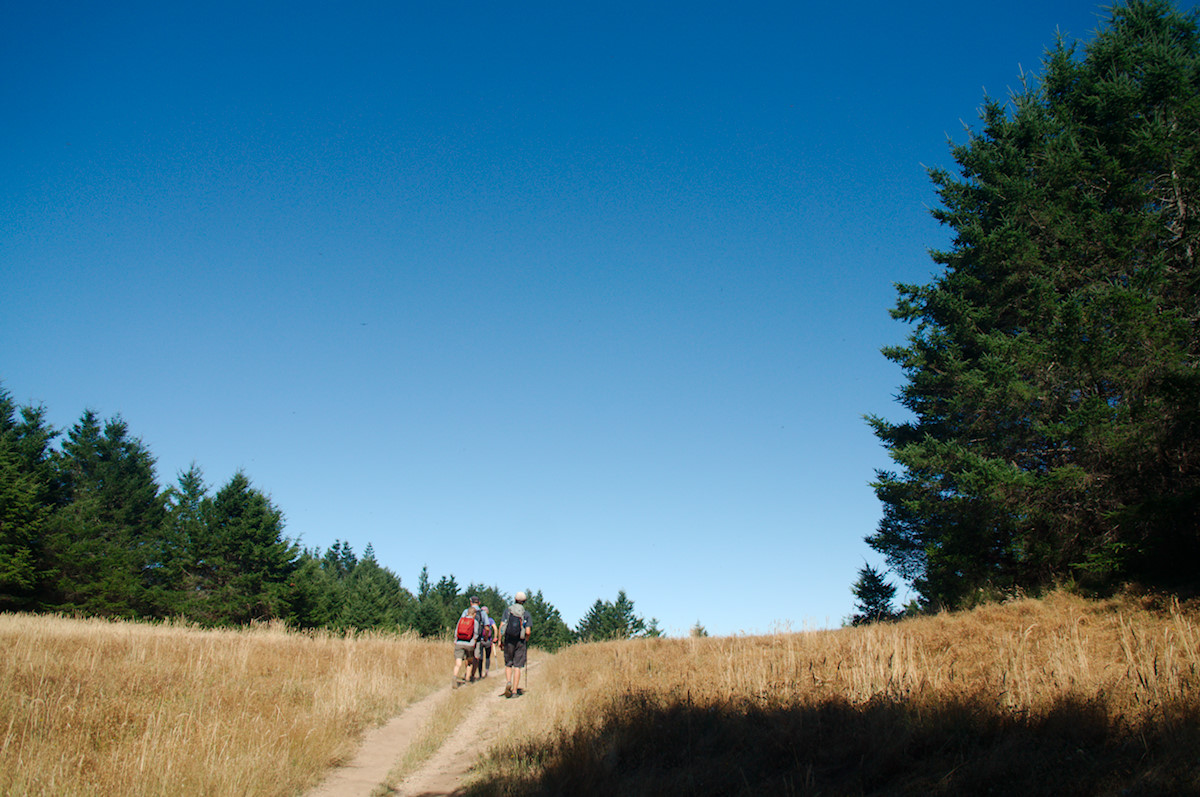
I wanted to title this post:
Walking each other home ~ Life in a marina, homelessness, a western mindset, and owning my life
But it's a bit cumbersome, even for me.
Walking each other home is taken from a quote by Ram Dass.
We're all just walking each other home.
That quote has resonated with me ever since I first came across it.
As I worked my way through this essay, following the trail of ideas that have been brewing in my heart and mind keenly during our time in California, seeking to weave them together, home was the central idea that emerged.
This is not surprising. Home, belonging, and identity are key life themes for me. I have committed to myself to explore and write through these themes for as long as I need. I never know how they will pop-up in processing my experiences, but pop-up they do.
On Aria
I didn't know what to expect, staying at a marina.
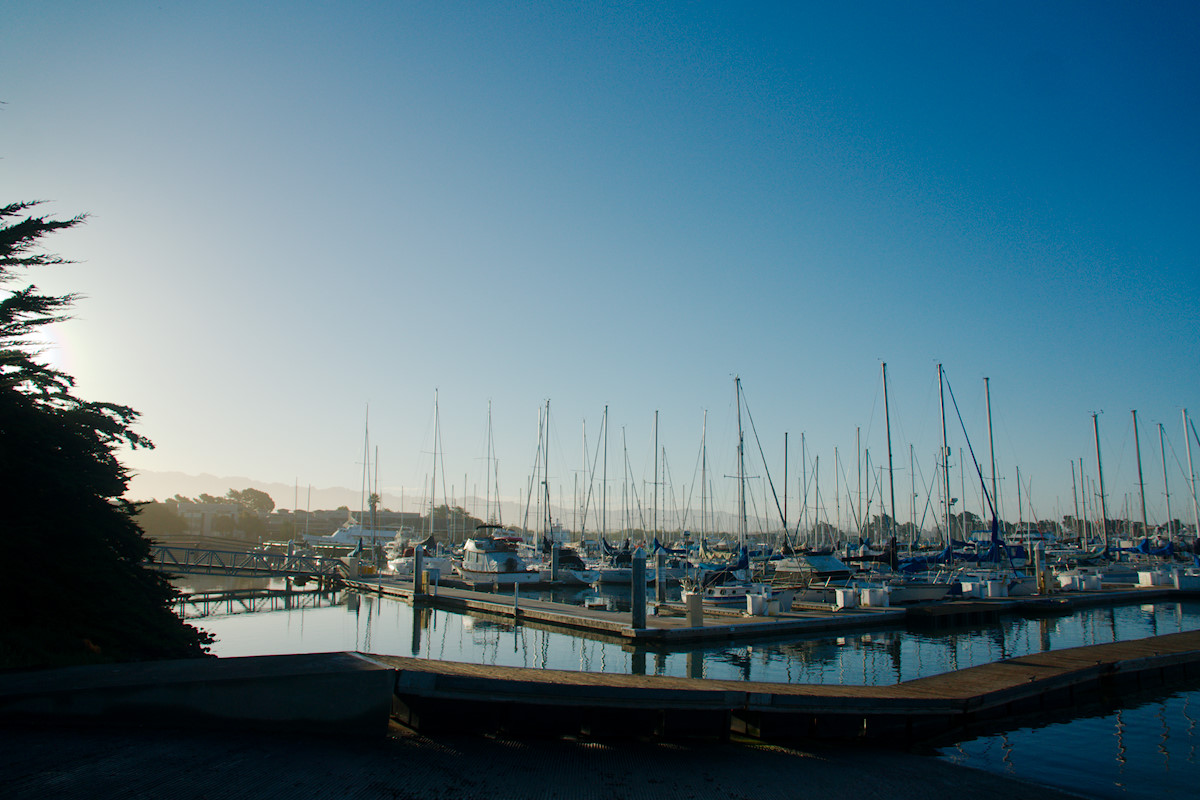
I thought boat people would be hoity-toity. And that to own a boat, a sailboat in California no less, you had to be wealthy. Boats are one of those things I imagined people acquired, along with second houses, convertibles and vacations in Europe. Perhaps this is true in some cases, but in my experience at the marina, mostly no.
Experiencing marina culture and boat "people" is one of the gifts of this trip. Our host Jeffrey tells us the Berkeley Marina, and boatyard and docks where we are berthed specifically, is unique in the world of marinas. It's a friendly, salt of the earth, hardworking but relaxed place. People are not snooty here, apparently they are in some marinas.
The Berkeley Marina, city owned and operated, and the Berkeley Marine Center, a privately owned boatyard, feels like a "practical place" in a beautiful location and this suits my sensibilities perfectly.
Aria, the 37' foot sailboat we've called home for three weeks is docked in the privately owned boatyard, right next to the city owned boat launch, where all the motor boats get in the water to head out into the bay and perhaps to the open ocean beyond the Golden Gate bridge. The morning, especially on a weekend, is a busy time of day. And with each puttering launch, the sailboat is gently rocked on her moorings. It's a lovely way to greet each new day.
Most of the boats docked at the marina are sailboats. And there are some actual houses on the water, houseboats I guess you'd call them. But there are also people who live on their boats.
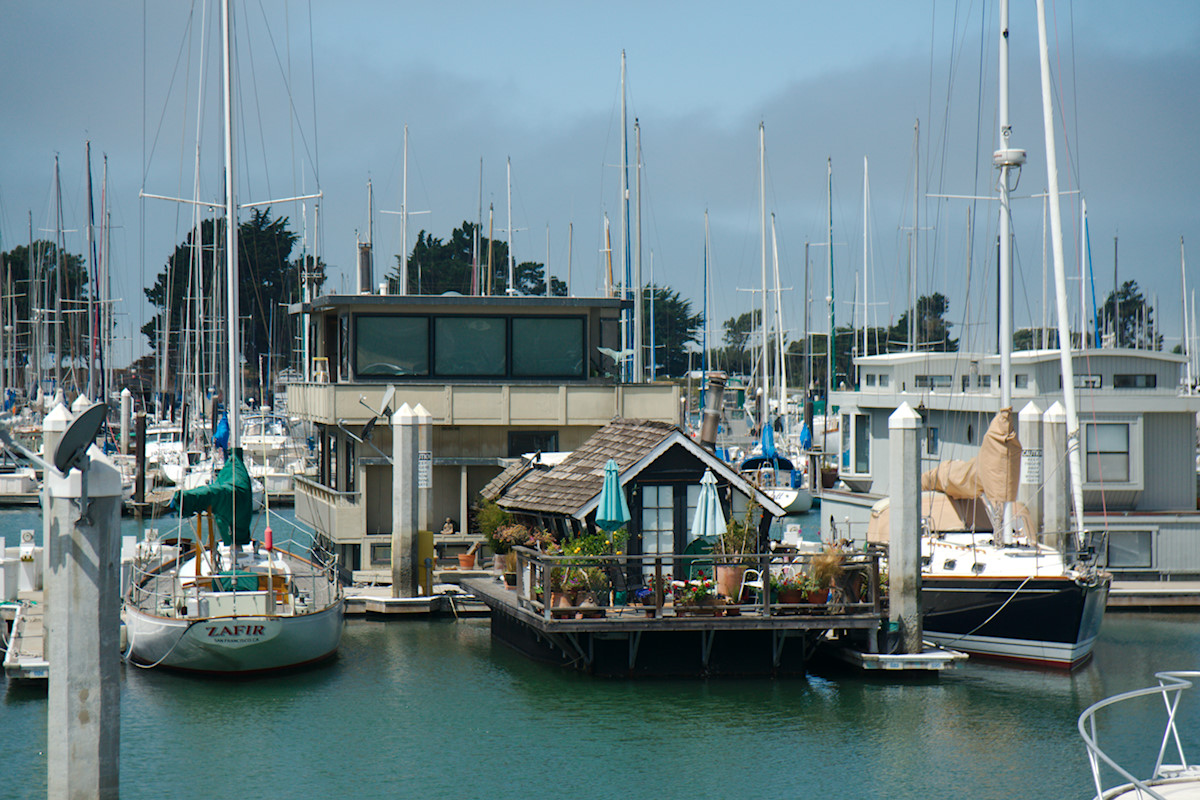
Living on a boat in the marina offers a cheaper housing option in the wickedly expensive East Bay area. As an affordable and small space living enthusiast I can appreciate this. You have to be certain breed of person to live on a boat, comfortable swimming in a different stream from the mainstream. And in this way, these feel like my people, even though the "boat" part is something new for me. There is an independent, adventurous, open-minded vibe at the marina. Maybe it's just Berkeley, California but I think it's also the general vibe of the living-on-a-boat community.
I know a few people online who are or have been part of this niche culture of society. Bethany, another homeschool mom, lived and sailed for a year with her family. An Instagram friend grew up on a boat, and a blog reader came out of the woodwork recently to share that she currently lives on a boat on the east coast with her husband and two children. These things are fascinating to me.
I'm familiar with people living in RV's. Well, people do the same thing with boats. Who knew?
In the past I've perceived boating as an expensive, high-maintenance weekend hobby. Not interested.
I didn't know that boating can be a lifestyle, is ideally suited to project-based living, and has its own alternative, no fixed address culture. It's a means to travel the world and take your home with you. People do this on all kinds of budgets, the same way they do life. The most interesting sorts of people pull up into marinas and boatyards. The kind of people I want to get to know. The kind of person I want to be.
Living in a sailboat for three weeks, and meeting a diversity of sailors from around the world, sparks my own imagination about the possibilities for us once the kids are grown.
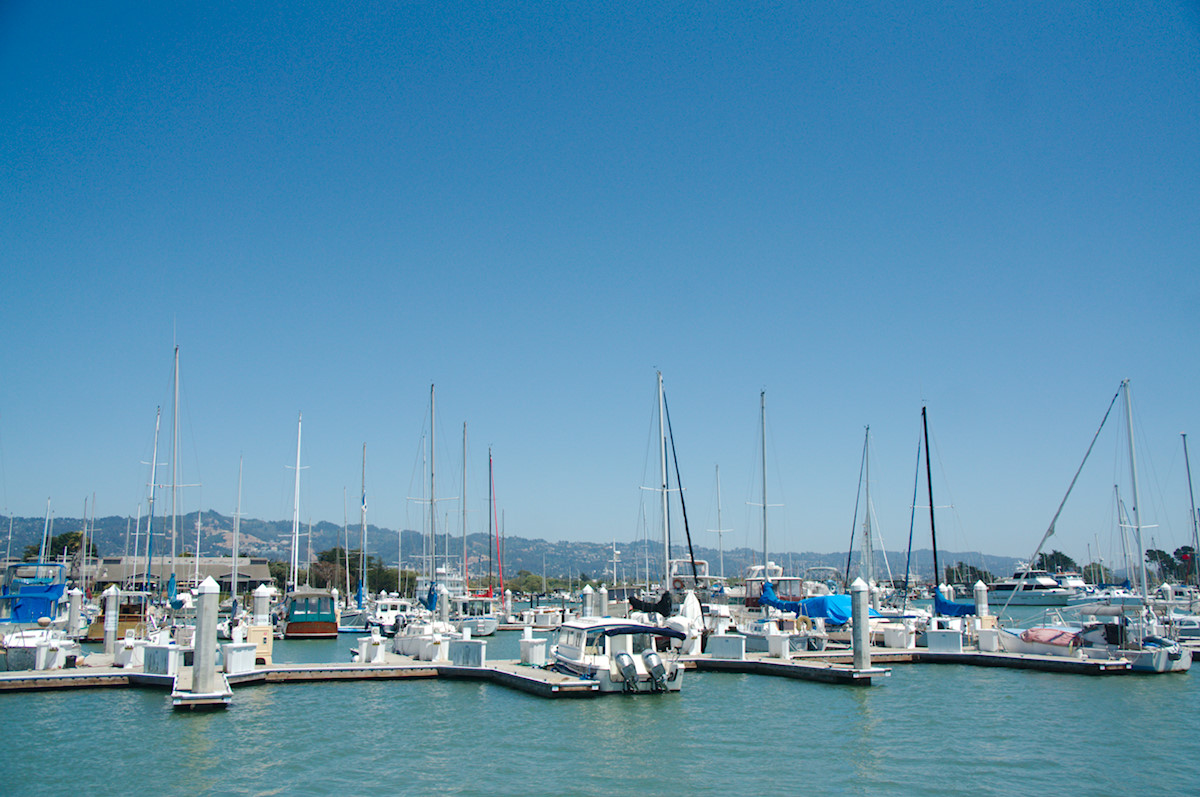
Damien and I have been dreaming about acquiring a small camping trailer (we love the Scamp) for traveling in our post child raising years. These summer road trips with our teenagers are the initial stages, a transition of sorts, into what we hope to be a rhythm of half-the-year travel paired with half-the-year fixed address living. Or something like that.
Sailing and boat culture has never been an interest of mine, until this trip. I like the small spaces and the cozy nature of boat living. I love being rocked to sleep at night. I like seeing new places. I like experiencing a new culture (in this case, the boat community). The whole "sailing" aspect on the open water is still foreign and a bit scary but I'm sure I could learn.
Maybe more sailing and marina experiences are in our future. Both of us hope so. But first a camper.
(We watched Maidentrip with the kids and that demystified the "sailing" part of boat life and convinced me, again, that people should be free to learn and live according to their convictions and that homeschooling is a feasible way to achieve this.)
Life at the Berkeley Marina has defied expectations, introduced me to new ways of living, and all around has been a richer and more diverse experience than I had imagined it would be. I'm deeply grateful to have been here.
The same could be said for California in general.
The homeless in our neighborhood
Life at the marina is not all pretty, and neither is California. Of course I hadn't expected it would be but neither was I expecting this:
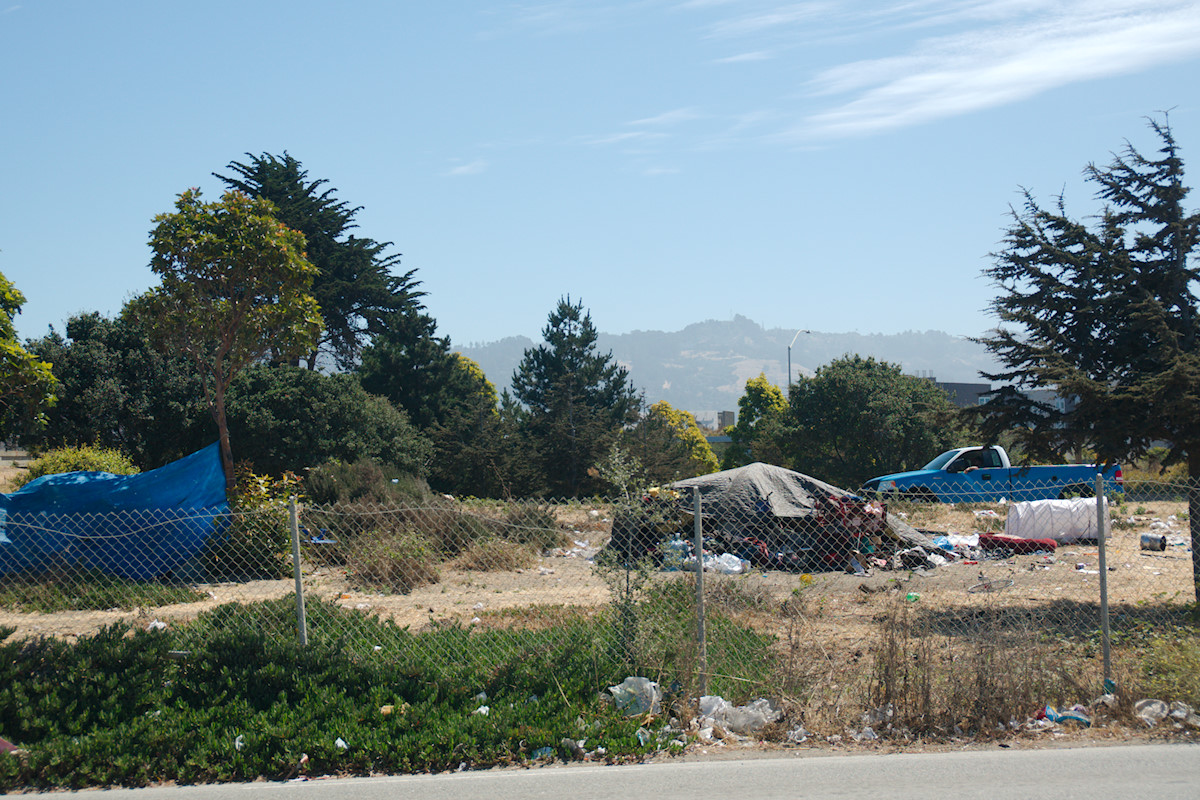
I'm using a photo to illustrate the thought because it's hard for me to put the ragged, raw, filthy despair and utter vulnerability of homelessness into words. (Also the trash and dirty-ness of California in general.)
I'm a beauty seeker, unapologetically. One of my callings is to bear witness to the beauty in the world and to share that in writing and photography. To call people to notice, appreciate, and cultivate beauty in their small corner of this place we call home.
There is nothing beautiful to me in homelessness. It grieves me to witness it and to write about it. But I simply cannot write about my experience in California or at the marina without talking about it. It would be the elephant in the room otherwise.
One aspect of living at a marina is using the bathroom and shower facilities. I suppose some people have showers on their boats but a lot of berthers, especially temporary folks like us, use the marina facilities.
The facilities are divided thus, a rectangular building with four public bathrooms on one side, and on the other side four "berther only" bathrooms with hot showers, accessible only with a key. A key that is provided by the marina to berthers only.
The public bathrooms are, in a word, disgusting. I avoid them whenever possible. Honestly, I have no idea what people do in there to create such a mess. Heaps of damp toilet paper and toilet seat covers wadded up in the corners and at the base of the toilet. Random streaks of feces smeared on seats. Or worse, a pile in the corner of the bathroom. I kid you not.
The toilet paper dispensers are broken and often empty, the garbage overflowing with more refuse. The smell indescribable. The mirrors are not mirrors at all, but "reflective" corroded, and stained metal.
I wonder how does this happen? That people value something so little that they leave a place worse than they found it.
I'm convinced that how we treat property, how we treat the earth that is our home, how we treat others is a reflection of how we view ourselves. Do we view ourselves as worthy of clean bathrooms? Do we view ourselves worthy of a good earth? Do we view ourselves deserving of loving relationships?
These bathrooms get cleaned on a regular basis by saints called public works employees, Spanish speaking folk mostly, who's work deserves more remuneration than received, I'm sure of it.
The bathrooms sicken my stomach, but they also sicken my heart because of the story they tell about the people who use them and the people who clean them. The bathrooms are used by a lot different people; boaters, runners and walkers, and the homeless people and hobos in the neighborhood. I don't know who leaves them in such a disturbing state. I don't know who to blame.
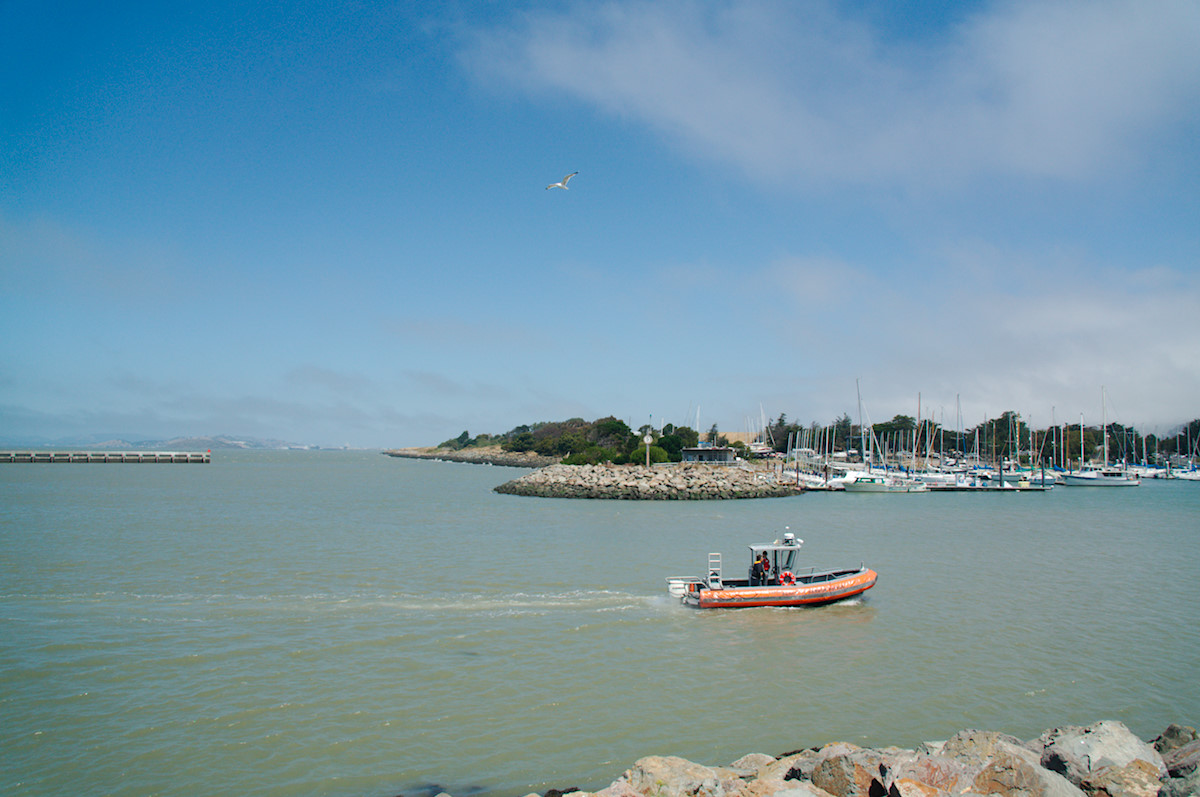
I use the private berther bathrooms. These bathrooms are nothing special, they mostly mirror the ones on the opposite side, but they are clean, relatively. And they have a precious commodity, hot running water and showers. These are the bathrooms we use because we have that special key.
As I was going to use the facilities one evening I stopped by the garbage area first to drop off my recycling. There was a none-to-clean homeless-looking person there, searching for treasure. He was friendly and said "Hi", and I returned the social gesture with a smile and similar salutation. I guess that was enough of an opening for him to ask if I could give him access to the berther bathroom. Presumably so he could use the shower, but how was I to know.
The man looked younger than me, long dreadlocked hair, dirty clothes. He may have chosen his situation, it may have befallen him. How am I to know? How am I to judge?
I said no, I could not give him access.
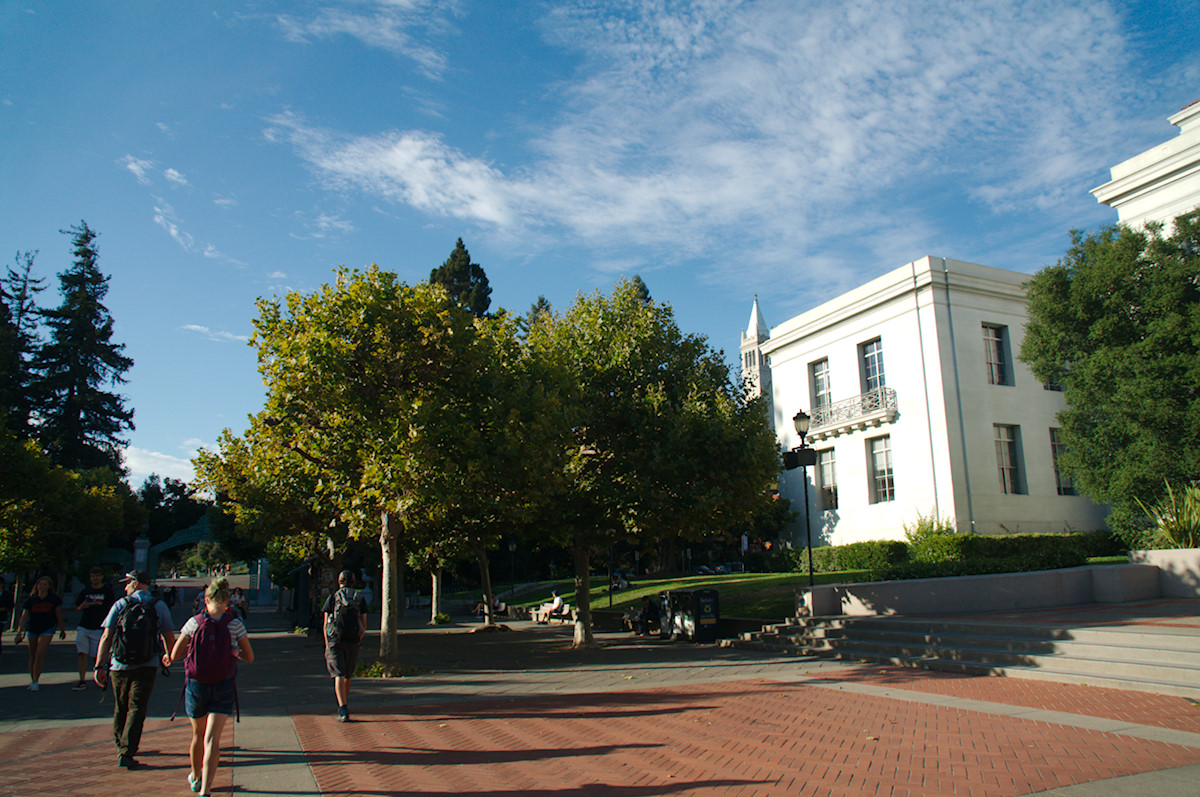
I wish he had never asked. I didn't want to be in a position to say no. I didn't want to be in a position in which my privilege was so obvious. I felt both affronted and ashamed.
I can hide behind a couple reasons for saying no, all of which are valid. The thought of all those homeless people having access to the private bathrooms and turning them into the sorry state of affairs on the other side is a valid reason. Also, I'm wired to be a rules and regulation honoring person. There are clear safety and sanitation reasons why people who are registered and paying contributors to the marina have access to these bathrooms and others don't. Maintaining that boundary is reasonable. Plus, how am I to know what and how that person would use or abuse the bathroom.
I did not feel I was in a position to grant access to this person.
That was a lot to have race through my head in a ten second exchange, in which I said no to someone's request to use a bathroom. I don't know that I made the right choice, but it's the choice I would want other berthers to make. There's a reason we have keys.
To have such a basic privilege thrown in your face like that, I have shower access and you do not, was disarming.
Bathroom access at the marina is a real thing but it's also a metaphor for everything I have that others do not have.
I am the hoity-toity with my Montreal apartment, Mazda with stickered roof carrier, and our working vacation road trip to the west coast.
I am privileged. I am the wealthy.
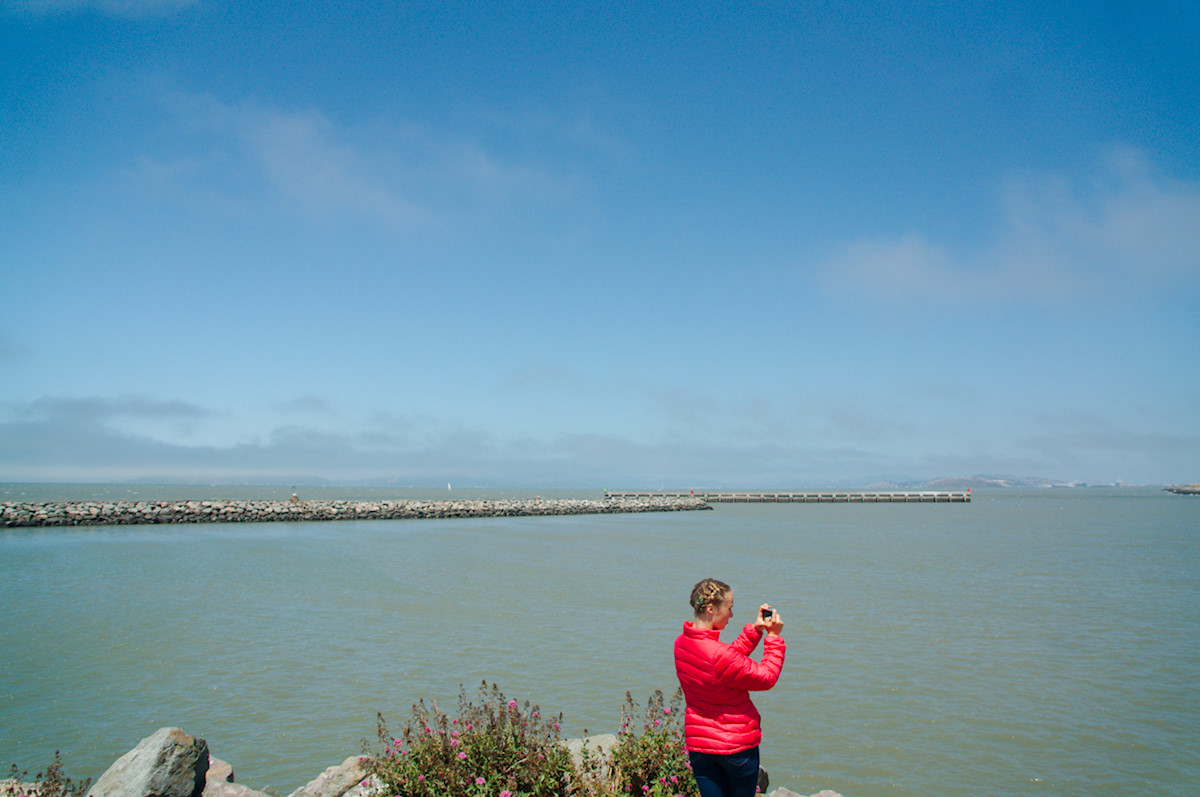
That's what California is showing me.
California is beautiful and parts of it tell a disturbing story of North American society. Not all is well in this world, in case you didn't know.
I've been sharing short observations of these realities of California on Instagram and a local explained it like this:
Our housing market + lack of residential care for people with mental health problems + our criminal justice system's insistence on criminalizing things like substance use and poverty-related crimes has really given us a tough problem to unravel. Homelessness is very visible here, and unfortunately the successes are invisible. I work in homeless policy in Marin County (between SF and Santa Rosa) and we're seeing huge positive shifts in our community, though it's not yet visible on the streets.
I'm not from here. I didn't cause this. It's not my problem. Someone else needs to do something about it. I'm just passing through. I don't need to get involved. Until I'm asked if I can give access to showers. Then I'm part of it.
I've never wanted to travel in the developing parts of the world because I don't want to be confronted with the injustice of distribution of wealth and resources on such a big scale. I don't want to feel helpless, and useless. But most truthfully, I don't want to be confronted with my privilege and wrestle with the just and appropriate response.
I live in Montreal. I say no to panhandlers all the time. Very rarely will I give money to people on the street. Not so much because I'm concerned about how they're spending it (though I don't want to be supporting drug habits), but because I don't know where the boundaries are. Once I start, where does it stop? What is my responsibility? Who exactly is my neighbor?
A Western Mindset
In sailing speak I'm going to tack here, which means shift my sails to change course a bit (simplified definition of tacking). I'm not completely changing directions, but I hope to provide a western context to the questions of homelessness, community, and obligations to neighbors.
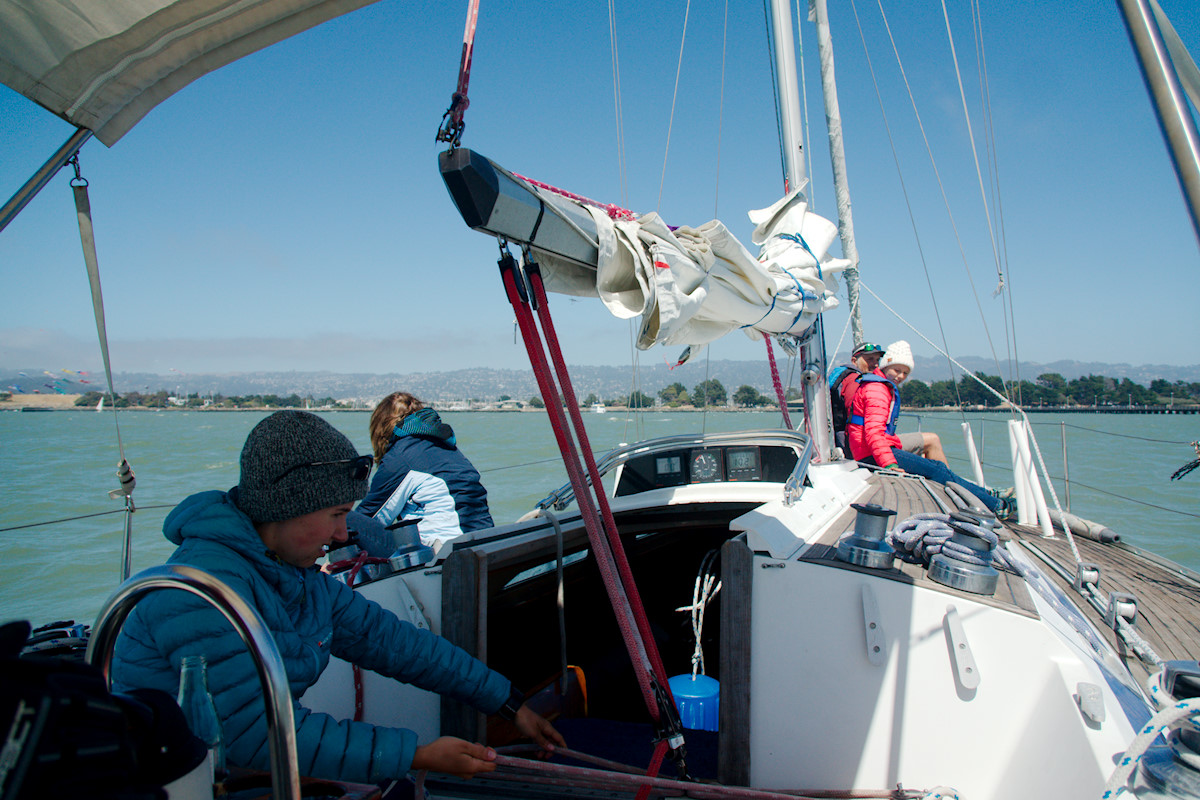
While we've been traveling I've been reading a collection of essays by Wallace Stegner, an award-winning and distinguished western writer, historian and novelist of the 20th century. I am thoroughly enjoying his non-fiction writing about wilderness, aridity (the defining feature of the American west), and western history.
His insight's have given some language and context to my personal experiences of migration (the impetus for my questions about home and belonging). And they also help explain, at some level, the root of some of the homelessness I've observed in California.
From Where the Bluebird Sings to The Lemonade Springs:
The initial act of emigration from Europe, an act of extreme, deliberate disaffiliation, was the beginning of a national habit.
It should not be denied, either, that being footloose has always exhilarated us. It is associated in our minds with escape from history and oppression and law and irksome obligations, with absolute freedom, and the road has always led west...
But the rootlessness that expresses energy and a thirst for the new and an aspiration toward freedom and personal fulfillment has just as often been a curse. Migrants deprive themselves of the physical and spirital bonds that develop within a place and a society. Our migratoriness has hindered us from becoming a people of communities and traditions, especially in the west. It has robbed us of the gods who make places holy. It has cut off individuals and communities from memory and the continuum of time.
American individualism, much celebrated and cherished, has developed without its essential corrective, which is belonging. Freedom, when found, can turn out to be airless and unsustaining. Especially in the west, what we have instead of place is space.
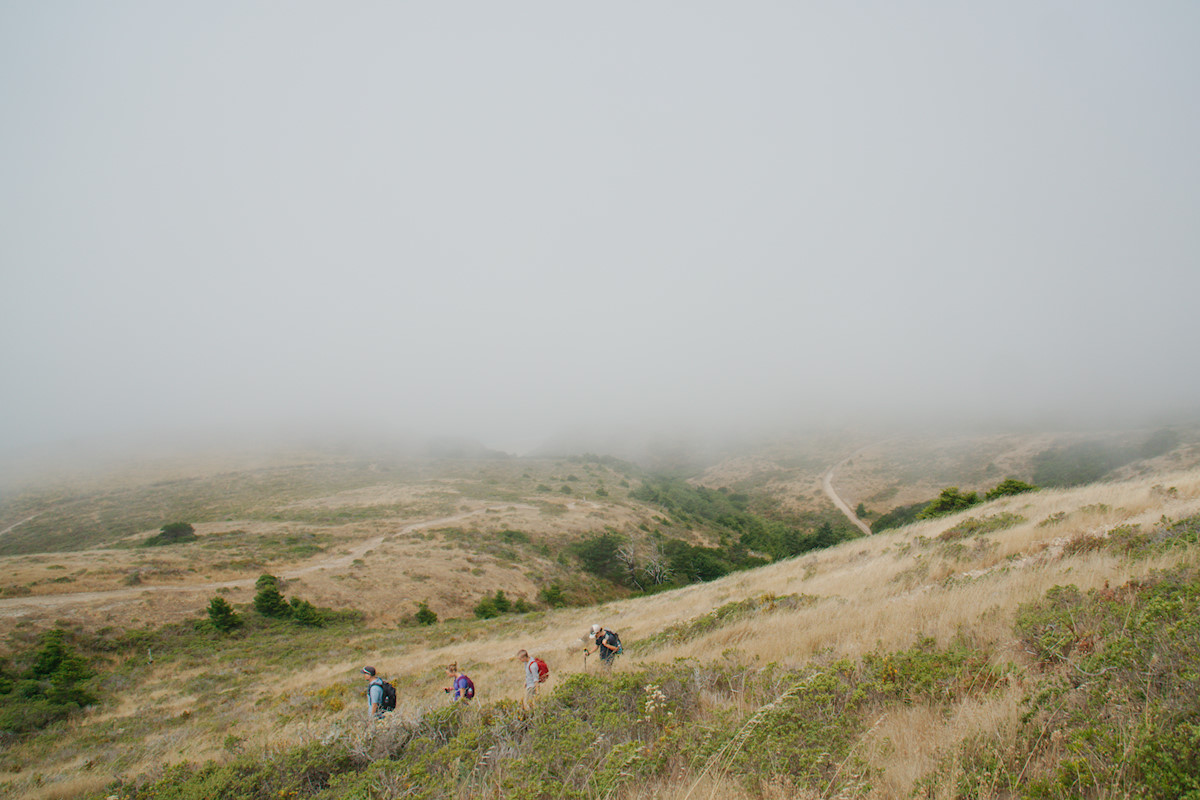
I am a western Canadian born and raised woman, with a western mindset for open spaces and experiences. And it was a quest for opportunity and adventure that moved my husband and I east, ironically, in our twenties. We didn't realize at that time, young, hopeful, and optimistic, that we were making a migration. And that after that move we would never want to return to where we were raised, specifically, but that even after years of living in the northeastern US and then Quebec, we would always feel a tug back west.
I didn't know I'd end up a woman in my forties not identifying with a piece of land, a place on earth that I call home. I don't have a sense of home in the way that some people do, knowing this place where I have built a house, worked for thirty years, or raised a family; this geographical region, community, acreage of land, this is home. That's not my reality.
I don't know where home is. And I haven't for many years.
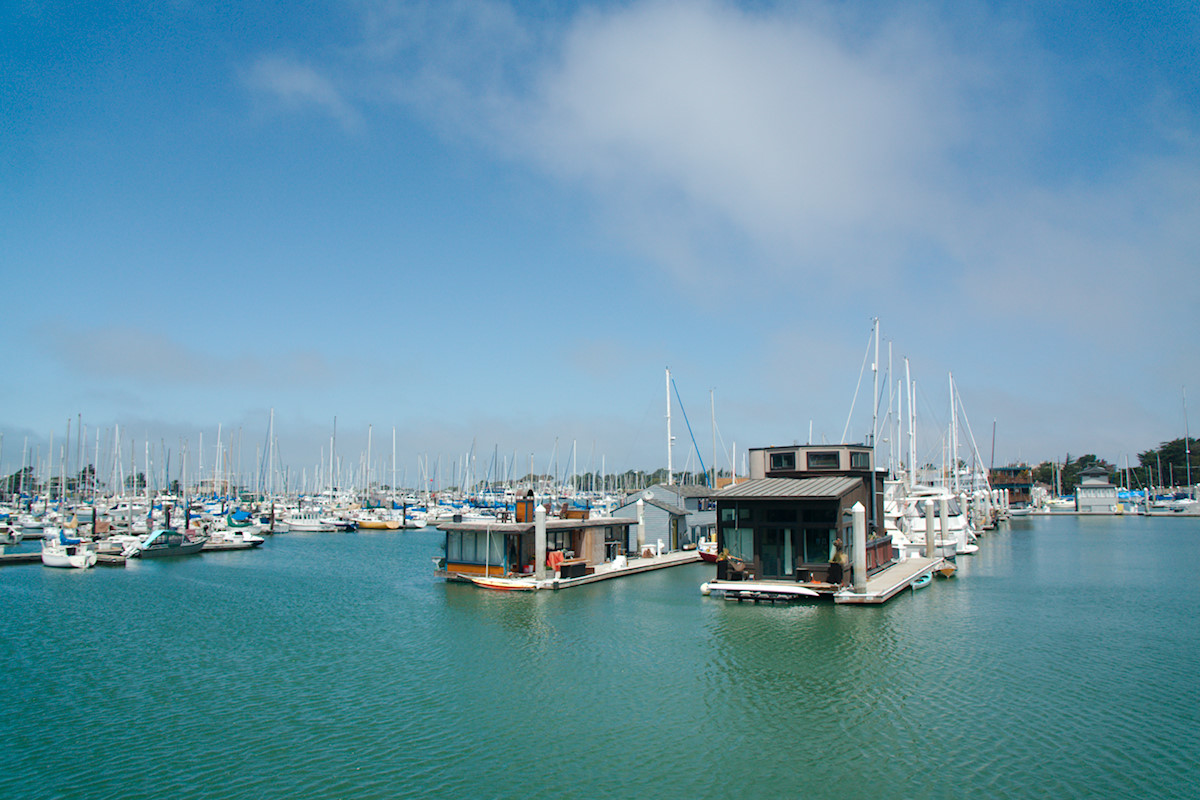
I don't like sharing this in certain circles because I don't want people feeling pity for me. I have an active, worst-case scenario mind, so I imagine people who know where home is could feel bad for those of us who don't. That this is an emotionally untenable state of affairs. It's not. It's not what I had imagined for myself, starting out my journey as an adult, twenty-odd years ago. But it is my life. A life that has been very rich and rewarding in experiences and relationship, and has brought less-than-what-can-be-expected suffering, loss, and heartache.
For a while I was searching for a place I could call home. Maine seemed on track for that but immigration complicates things, as any immigrant can tell you. Moving back to Canada was a move to home, as defined by citizenship, but not home as defined by a sense of belonging to place. Quebec does not pass that test.
We are living in Montreal till we finish raising our children, because we need stability at this stage. We want to be close enough to Nova Scotia to sustain the relationship we have with my parents, and we want to provide access to resources, community, and a steadiness-of-place to help launch our young adults into their own lives.
Montreal is a compromise, we feel it's the best fit given all the parameters, to meet the goals for this stage of family life. It's a finishing place for one part of the journey, a launching place for the next part. In that way it's a transitional space but I'm content here, for now. And in that way, it feels like home.
According to Stegner I might be living a western existence in an eastern landscape. But maybe this is just a human experience in a human landscape.
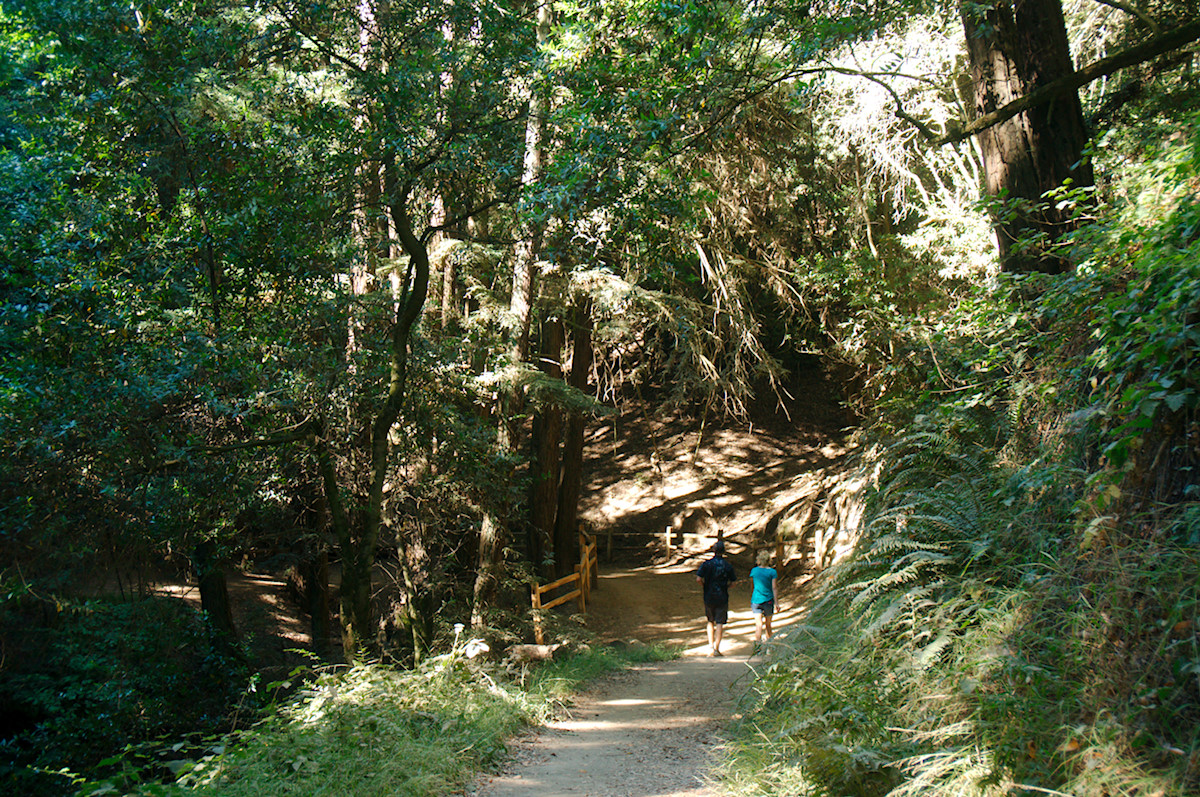
Owning my life
This is our family reality, and it's not the norm and it's taken me some time to get comfortable with "owning" it. This is who we are. Our children will launch from here into their own lives and they will be stickers (a Stegner word) or movers, or a bit of both. Damien and I will launch from here and maybe we'll find a place to which we will stick or maybe not.
Maybe we'll find a forever home, a place we never want to leave, the place that is homebase, longterm, for our remaining lifetime, a marriage of adventure and making home. But maybe our forever home will not be found in a specific place, but in a way of being in the world.
Our time in California has shown me many things and one of the things it's given me is a clearer appreciation of who I am and what I want to do with my life, for my forties at least.
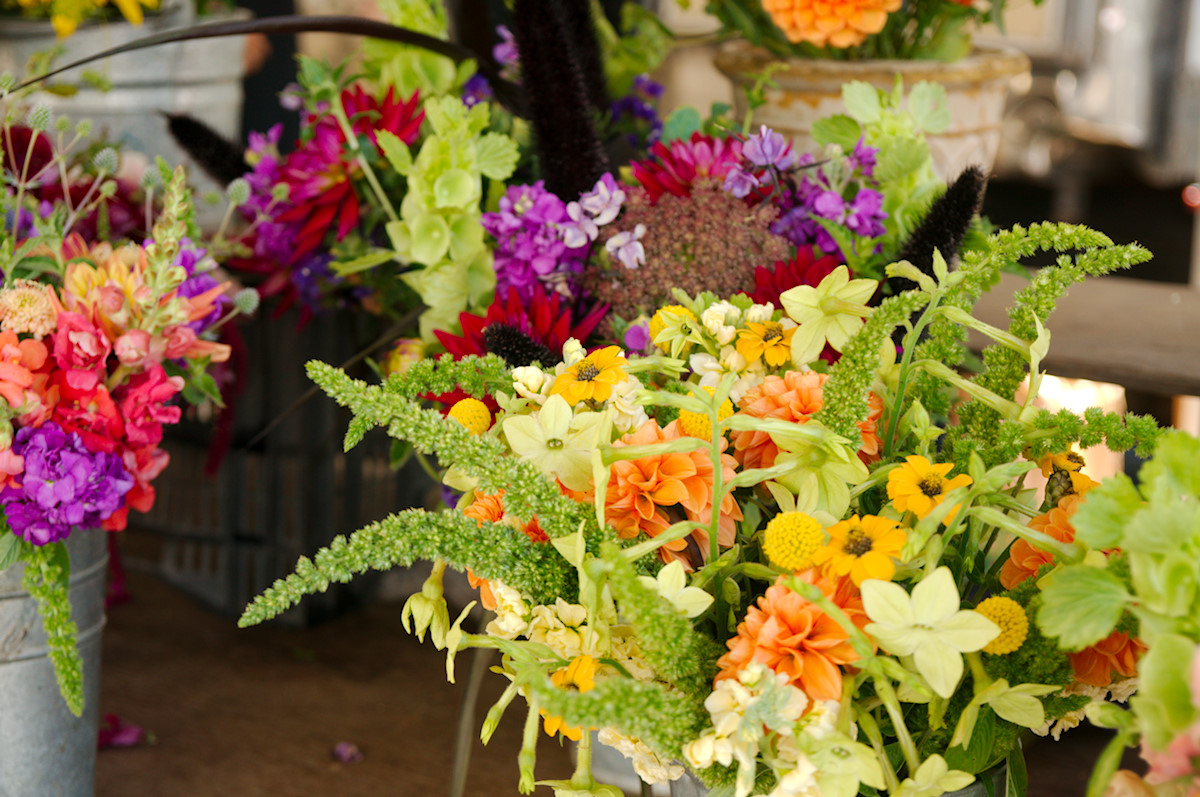
I want a fixed address homebase, like I have now in Montreal, a safe and comfortable space to finish raising the kids and help them become independent. But I also want to have extended periods of travel and experiencing other places in a home-away-from-home (small camper, rentals, sailboat?)
This is not what I call "best of both worlds", best would be that thing we still haven't found, a forever home in a beautiful, affordable place where both Damien and I feel a strong affinity for land, culture, and community. From which we would pursue further adventures. It's basically heaven, perhaps literally.
One of my core fears is that I will fail my children. And because the only standard of good parenting I know for certain, from personal experience, is how I was raised, I've struggled for years with insecurity comparing the slightly nomadic, sojourning path of my adult life against the security and rooted-to-place reality of my childhood.
I had a great childhood. I love my parents deeply and I feel fiercely and unconditionally loved by them. They are part of my ground of being that has given me a foundation in life on which to grow and flourish. By nurture and nature, I'm a homebody, a homemaker, and a community builder. These require place. I also love transformative experiences, in wild places especially, and the thrill of open spaces. The road west, metaphorically and physically speaking.
Sometimes I ask myself, Am I missing out? Have I shortchanged my children?
Of course I'm missing out, on some things. You can't do or be everything. But there is no defined measure of what "I should be" and I certainly haven't shortchanged my children. We've provided a roof over their heads, food for the table, an education and ample opportunities for growth and healthy development. We've plugged ourselves into community wherever we are, whether that's on a long distance trail, in a small Quebec town on the Gaspe Peninsula, or in a marina on the opposite coast. And most importantly, we've rooted them in relationship.
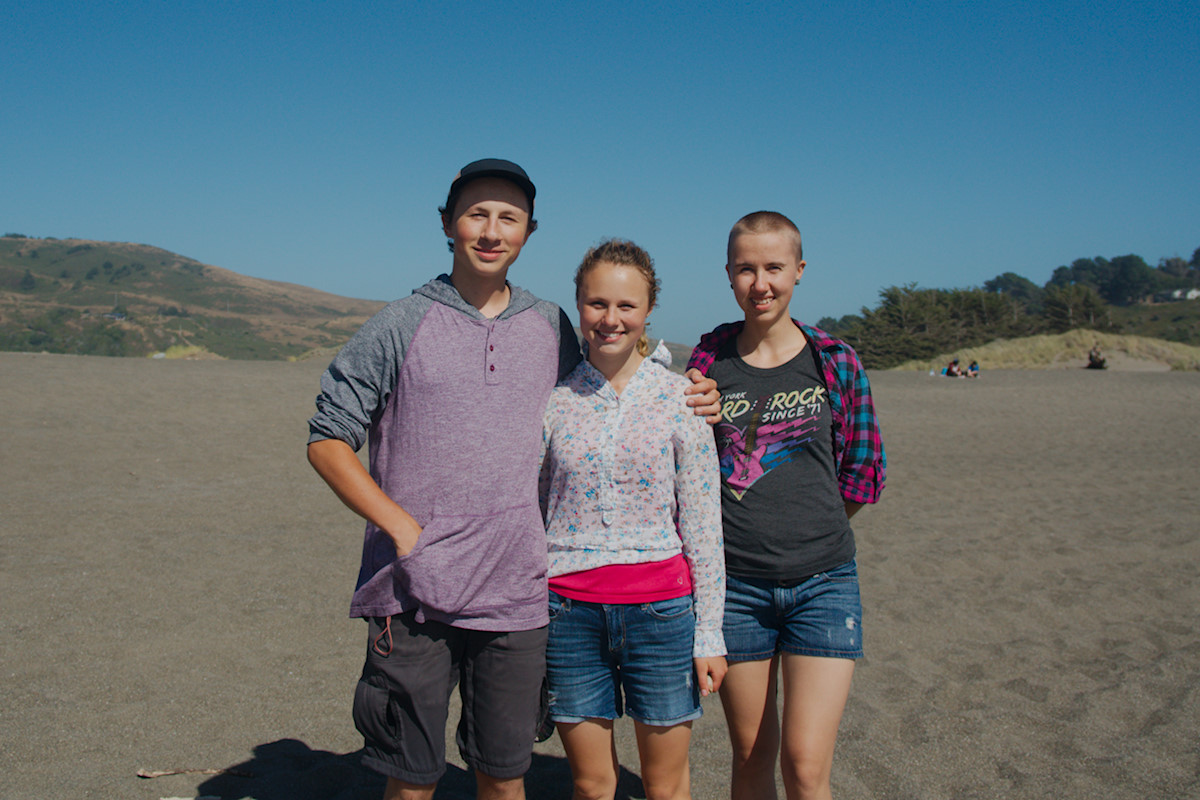
We, us, our family is home.
The kids will grow up and go their own ways (we'd like to follow them and remain close to them) but these years, what we've given them, have been good, they've been enough. Actually, they've been better than good enough. I haven't given them my childhood, I've given them their childhood.
We've given them diverse life experiences and adventures while being rooted in solid relationship with God and each other. We have provided a way of being in the world that is creative, flexible, open-minded, and open-hearted. It's not better, it just is.
It is who we are. It's time I owned it, and stopped feeling so damn insecure. (It comes and goes in waves.) I may not own much, but can own my identity. I can own my experiences, my place in the world. I can own what I've given my kids. I can own what I truly want for my future.
And yet I come back to Stegner's words;
Migrants deprive themselves of the physical and spirital bonds that develop within a place and a society. Our migratoriness has hindered us from becoming a people of communities and traditions, especially in the west.
Stegner published these words largely before the rise of our current economy in which migrations and movement are not just motivated by the need for freedom and personal fulfillment (to find that piece of land in paradise), but are necessary actions of staying employed, not just for migrant farm labourers, but white collar managers and computer programmers. But I do wonder if it isn't "a continent to take over and Manifest Destiny to goad us" that hasn't enabled the economy to shift as it has.
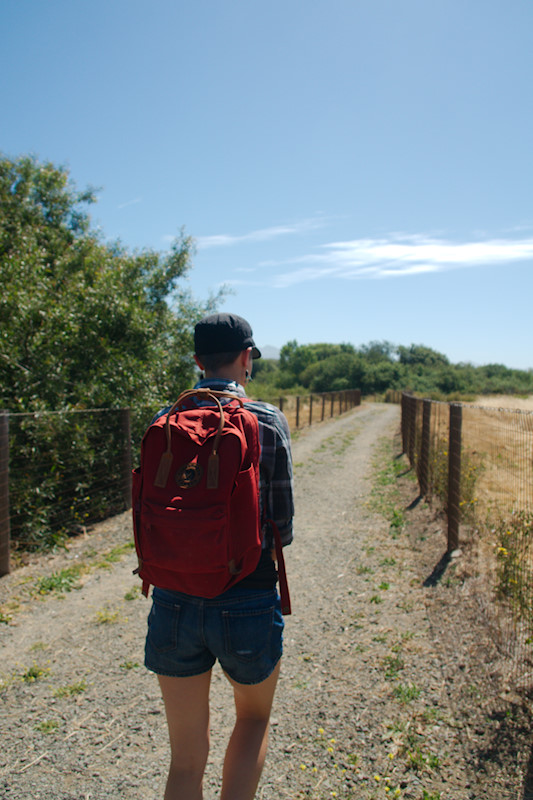
As a migratory person (I'm owning this after all), Stegner's interpretations and understanding of movement interest me and they do provide some context for the California vibe, which feels exploratory, creative, and entrepreneurial on one hand; transitory, socially-isolating, and rootless on the other.
His reflections, written some thirty years ago, don't take into account the rising cost of housing that far outpaces inflation and the influence of globalization and foreign-based actions in local places, the Chinese buying of property in the Vancouver area, as an example. It is not just our individual actions that make the life we live, it never has been.
It is a complicated place, this world. And everyone I know is trying to make a home, find and build community in whatever way they can on this blue-green earth.
I think this is the heartbeat of humanity, regardless of where you're born. This makes me think it's a Divinely-inspired idea, in our spiritual DNA. We're all looking for home. That place we will always belong - to the land, culture and community.
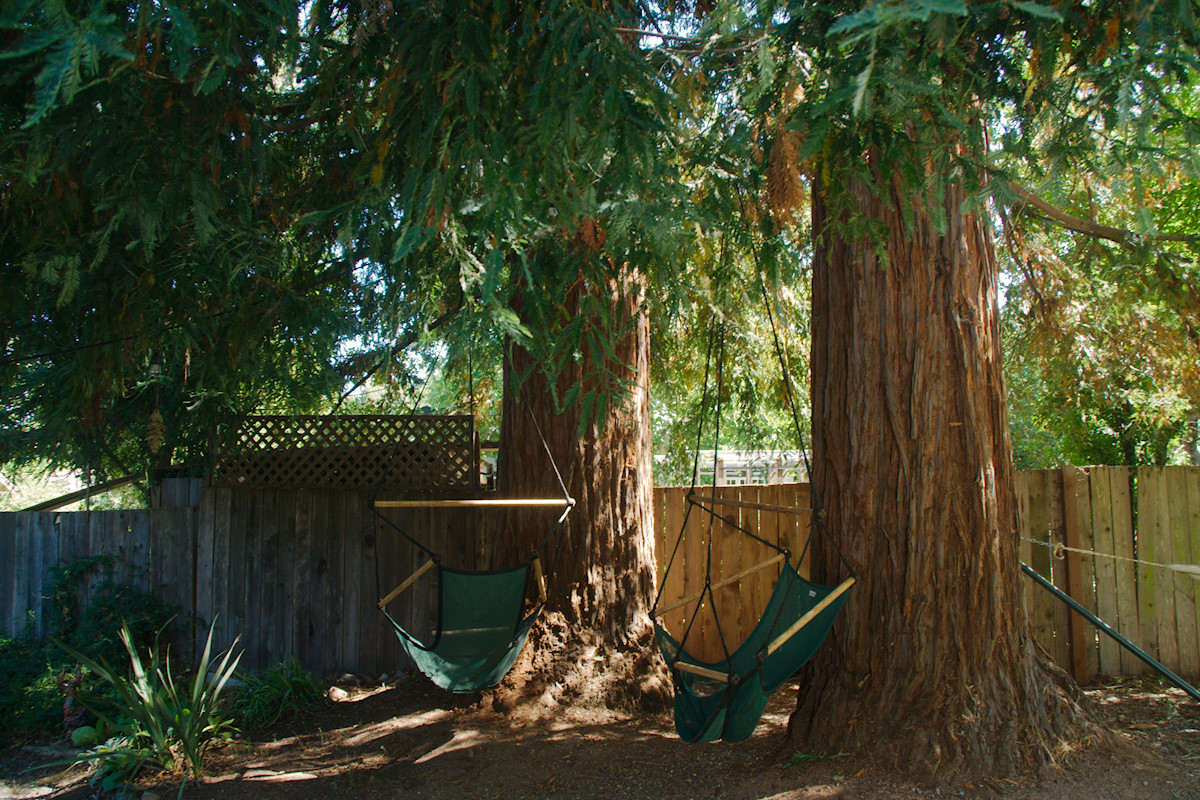
What if that land is earth and that culture and community is humanity?
This is my home. You are my neighbor.
Part of Series
-

gracemarieatx on Aug. 10, 2017, 9:46 p.m.
"the California vibe, which feels exploratory, creative, and entrepreneurial on one hand; transitory, socially-isolating, and rootless on the other."
YES, exactly. I know I've commented a lot on your instagrams Renee, but I love how succintly you sum up your feelings in this post. as a 4, your linear brain really wows me! i'm always riding the emotional rollercoaster of feelings.
-

Renee Tougas on Aug. 11, 2017, 2:53 p.m.
Hi Gracemarietx,
It was your comments on IG that helped me find language for the darker side of the California vibe. It's hard when you're visiting a place for just a few weeks to put things into words, which was part of the impetus to read other writers (Stegner) to help understand place from both a immersive (being there) and reflective (reading about it) perspective.
I am fascinated by places and their energies. It's a joy of traveling to experience this.
-
-

Teri on Sept. 12, 2017, 2:55 p.m.
"which feels exploratory, creative, and entrepreneurial on one hand; transitory, socially-isolating, and rootless on the other."
This feels like the story of my life. I was born in MA, went to college in ME, moved to CA, then spent 13 years in OR. Then we moved to the Midwest, and have been in Missouri for 5 years, but are already seeking our future home. Living in the Midwest, I deeply miss my west coast community. But the west has become financially unaccessible for so many.
We love travel (I'm also obsessed with the Scamp), and since we have virtual businesses, we are able to take flight and explore the country - we spent the entire summer living and working in Vermont and just returned from a trip to CA - but I miss the 20 year friendships I have left behind. I miss the feeling of being "part of something."
By the way, I'm also a 6, and I feel like being part of a tribe is something I deeply value, and yet always feels elusive.
Glad to read your musings.
-

Renee on Sept. 12, 2017, 3:55 p.m.
Teri, I just had to respond right away when I read that you are a 6 and have also live a non-standard life. You said, "being part of a tribe is something I deeply value, and yet always feels elusive". Oh gracious sister, do I ever hear you.
Lately, have been evaluating my life choices and the path our life has taken, through the lens of my Enneagram type, to try to help me understand some of the struggles I've been facing in recent years.
The enneagram is a just tool to understand truth, it's not Truth, but still, it's been very helpful for me to understand the root of some of my anxieties, based on the things I truly seek in life. Sometimes I think I'm seeking one thing but it turns out my motivations come from a place of trying to ensure my security: in marriage, in relationships, etc... This is why my husband and I can arrive at a similar course of action in our decision making but our motivations for arriving there, and expectations (what we will achieve internally & externally) for that decision, can be vastly different.
Sometimes, it's hard to reconcile my six-ness with the non-mainstream life choices we've made (because by nature I am a guardian and loyalist and want to ensure safety through adherence to structures and systems). Sometimes I think, did I choose wrong and that's why I'm experiencing this pain? Was I not self-aware enough to understand the motives and implications of my choices? And I also ask myself, "is there anyone out there who can understand this wrestle and sense of disconnect from who I am and how I've lived?" And yet, I don't believe there truly is a disconnect, it's just that I need to see my decisions (which sometimes seem counter to ensuring my security and the security of others) with a different framework than the one given me by North American society, which values certain types of security and rootedness.
Which doesn't negate the fact that I do, deeply, need a rootedness to something. But finding that thing, that place, that community, is yes, elusive. Which is why I'm doing a lot of inner work and reflection on where I can truly find security.
To read that you are a 6 also make me feel like you might understand some of these struggles. So thank you for saying hi. If you ever want to chat, drop me a line renee at tougas dot net.
(Also, I love the west and completely relate to the inaccessibility due to cost of living and land.) PS. I just listened to a podcast interview with a panel of 4 type 6 women. Loved it.
-

Teri on Sept. 12, 2017, 4:15 p.m.
I'll definitely listen to that podcast -thank you for the link!
The intentional neighborhood in which I live is fairly obsessed with the Enneagram. Everyone here uses it as a tool - although sometimes it feels like it's borderline used as a judgement. I'm guilty of it too. My husband is a 1, and it's SO easy to pigeonhole his ways into his "one-ness."
I have a very strong 7 wing, which leads me to have a strong urge for adventure, change, new experiences, new situation.
Although I too am a rule-follower, I've never felt that my own life has to follow rules - I make my own rules. But rules that society holds, like being polite in certain situations, not asking for "too much" from others, doing what the "authority" says... those are ones that I feel like I need to follow. Interestingly, I've done much better as an entrepreneur because I don't have to feel an internal conflict about following authority or following my intuition. It's all me (which is mind-warping on another level).
Here's to strong 6 women and our curious path! xo Teri
-
-
You can subscribe to comments on this article using this form.
If you have already commented on this article, you do not need to do this, as you were automatically subscribed.






abby on Aug. 10, 2017, 9:11 p.m.
Oh, so much here to ponder, so much I identify with.
But my immediate response is that we own a 16' Scamp, have had it about 2-3 years now. We LOVE, LOVE, LOVE it. Got introduced thru an aunt and uncle that have the 13' version. If you're ever in central IL, (or Madison, WI and I'll intro you to them) visit and tour it and we'll talk all things Scamp. :)
We homeschool, and have been traveling about 4-5 weeks in Sept the last few years. It's been incredible, but you know that vibe. Off soon for the pacific NW-
Renee Tougas on Aug. 11, 2017, 2:49 p.m.
I'd love to talk all things Scamp. Enjoy your travels. Sept. sounds like a great month to travel. We hit everything in high season and that part of traveling in summer is a pain.